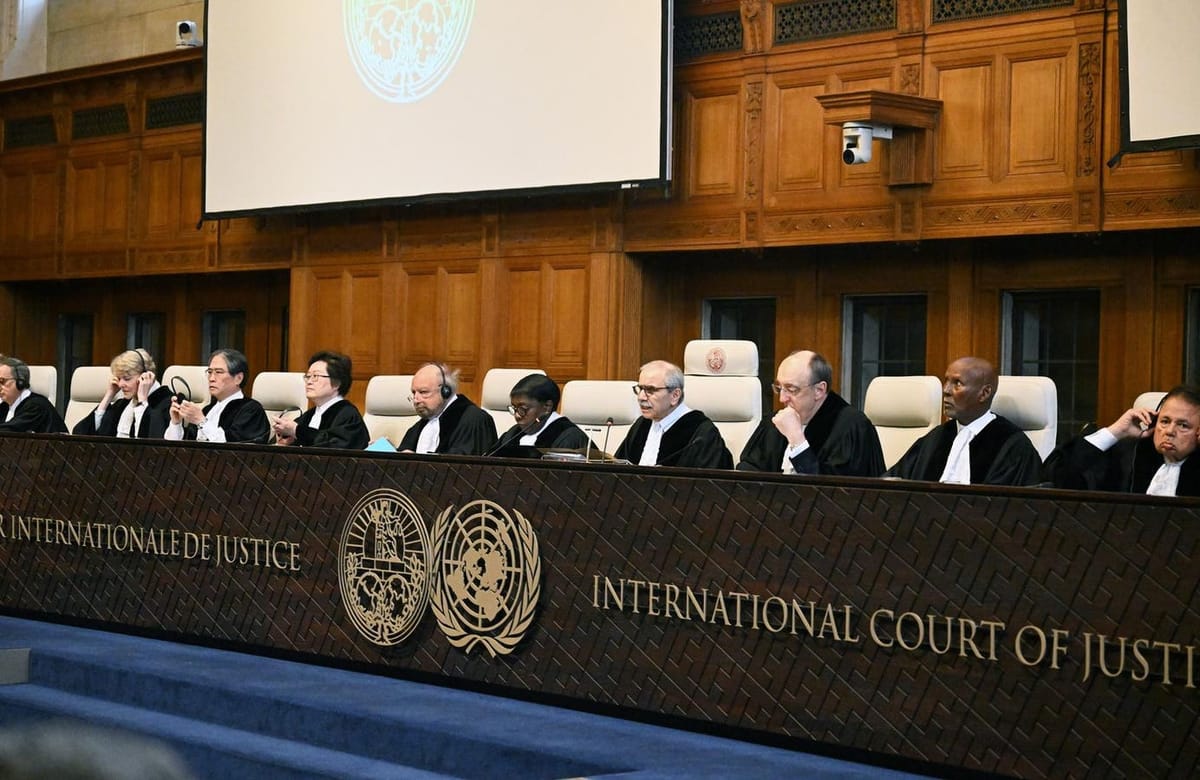States’ Legal Duty on Climate Change: A Turning Point for International Law
States now have a legal obligation to address climate change, following the International Court of Justice’s affirmation of environmental rights as fundamental human rights.

Climate change stands as the greatest existential threat of this century, and the world is entering a new chapter after the International Court of Justice (ICJ) issued a historic legal opinion affirming that states are legally bound to tackle the climate crisis. This landmark step recognizes the right to a healthy environment as a fundamental human right and paves the way for affected countries to take legal action against major emitters exacerbating the global climate emergency.
ICJ Affirms States’ Obligation to Address Climate Change
The International Court of Justice’s decision, announced in May 2024, marks a major milestone in global efforts to slow climate change. In its opinion, the ICJ declared that states, under international law—including the United Nations Framework Convention on Climate Change (UNFCCC) and the Paris Agreement—have a binding obligation to significantly reduce greenhouse gas emissions and take concrete steps to protect the planet from the impacts of the climate crisis.
This legal opinion emerged after persistent advocacy from Pacific island nations such as Vanuatu and Tuvalu, supported by over 130 UN member states, all alarmed by the negligence of major emitters in reducing carbon pollution. For countries already suffering from rising sea levels, extreme heatwaves, and climate disasters, this opinion marks a significant victory and a formal recognition of their right to live in a viable environment.
Environmental Rights Recognized as Human Rights
A central point of the ICJ’s opinion is its explicit recognition that the right to a healthy environment is now considered a universal human right. States are not just morally but also legally responsible for ensuring their citizens are not victims of environmental damage caused by neglect or intentional acts by certain parties.
This recognition provides a strong legal foundation for individuals, communities, and affected countries to pursue climate justice through the courts. As a result, climate change is now as central to human rights discourse as the right to life, education, or freedom of expression.
Affected Countries Can Sue Major Emitters
The ICJ’s opinion also creates new legal pathways for countries severely affected by climate change—such as small island nations threatened by rising seas—to take legal action against major emitting countries or multinational corporations in international forums. Developed countries that have long contributed heavily to global emissions now face stronger pressure to reform their domestic policies.
Previously, affected countries struggled to seek justice due to the limitations of international law. However, the ICJ’s opinion now grants new legitimacy and legal precedent for seeking compensation and accountability from large-scale emitters more effectively.
Global Implications and Policy Reform Pressure
The International Court of Justice’s decision is now a new legal foundation that can be used in various international forums, including the United Nations and other environmental courts. States are urged to strengthen their emission reduction commitments, accelerate the transition to clean energy, and reinforce environmental protection in their national policies.
The ICJ also emphasized the need for international collaboration, so countries do not merely race for short-term economic gain but commit to safeguarding the rights of future generations. Environmental advocates have called this decision a “game changer” in the fight against the climate crisis.
A Long Road to Climate Justice
Although the International Court of Justice’s opinion is advisory and not as directly binding as a court ruling, the political, moral, and legal pressure on major emitters is mounting. The world now awaits concrete action from developed countries and large corporations to fulfill their obligations. Meanwhile, civil society, activists, and affected states have a much stronger legal tool to demand accountability and to fight for the right to a healthy environment.
The ICJ’s decision powerfully affirms that confronting climate change is not only a moral imperative but a legal responsibility for every nation, vital for the survival of humanity and our planet.





Comments ()